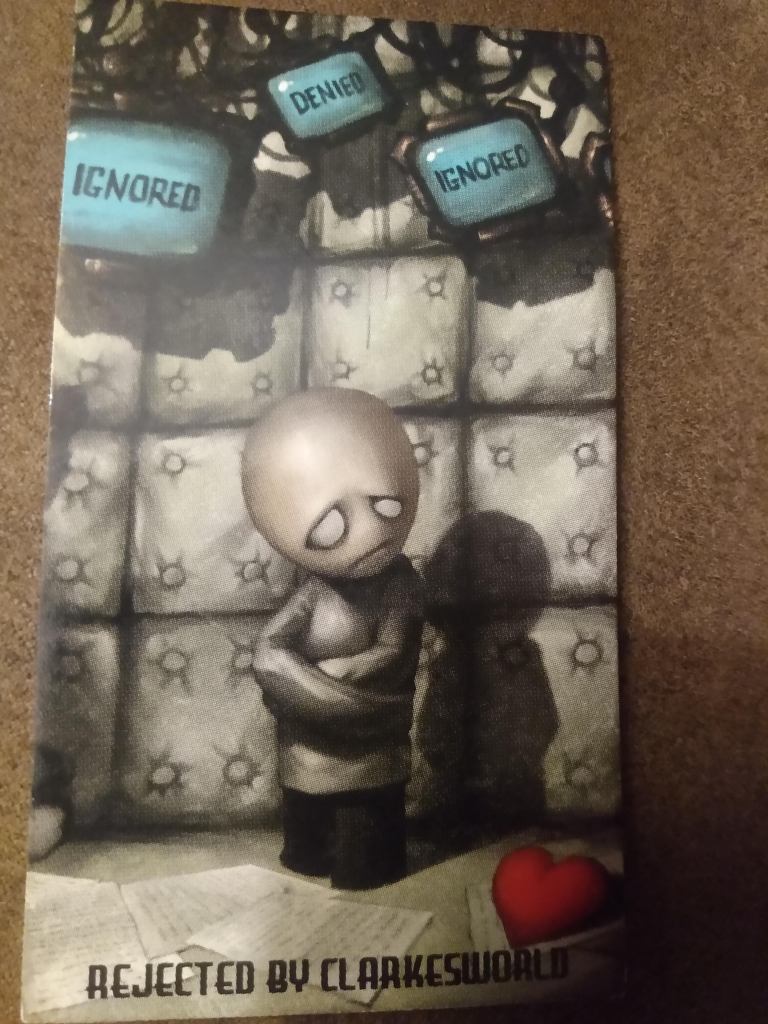
My personal theme for day two of the convention: “The worst they can do is say no.”
As you might guess from this, I had a couple chances to speak with agents today. My first event this morning was an hour-long session in which I and a small group of other writers hung out with Jennie Goloboy from Donald Maass Literary Agency and asked her all sorts of questions. She was wonderfully personable and encouraging to those of us who’re still trying to find our door into the industry.
Knowing when it’s appropriate to pitch can be difficult. During the session, Jennie communicated that she has a long backlog of submissions she’s trying to dig through. I’ve yet to meet an agent whose inbox isn’t swamped, however. Based on certain other things she said, it was hard to tell whether she’d be amenable towards in-person approaches.
I ended up just asking whether she would accept pitches during Worldcon, and she kindly invited me and a few others to pitch our books right then. She wasn’t interested in mine, but provided some useful feedback that I never would’ve gotten if I hadn’t asked.
Later in the day, I had a slightly more discouraging experience. I got to hear Andy Dibble and other panelists talk about The Witcher, had lunch with Andy and another attendee, then attended great sessions on podcasting before heading to the bar to see who was around. There was one particular agent I hoped to find, though I was sure he’d be busy—but, low and behold, I spotted him sitting by himself at an upstairs table, fiddling on his tablet. Choruses of angels burst into song all around me.
This man is one of the most famous names in literary circles. He is a dream-agent by anyone’s metric; one-on-one time with him was unbelievable. I approached, introduced myself, and asked how his convention was going. He was polite but didn’t seem terribly interested in conversation. I assumed he was busy, and so moved on after just a minute. Shortly after, I saw another young writer introduce himself, and the two of them had a long and energetic conversation. I suppose I must’ve misread the signals.
It’s easy to second-guess myself about things like this. Should I have been more forthcoming? Hung around for longer? Asked more questions? I thought about going back, but he was busy for the rest of the night.
Ultimately, I don’t think self-doubt is constructive. Maybe it was a missed opportunity, maybe it wasn’t. I’ll have other chances in the future. The main thing is to remember that, as long as I’m polite and respectful of people’s time, the worst thing that can happen is that they’ll say no.
While I’m on the subject, maybe someone reading this can answer a question for me about convention etiquette. There’s an agent I’m especially interested in meeting, but I’ve been waitlisted for her table talk tomorrow afternoon. If I don’t end up getting in, would it be socially acceptable for me to direct message this person on Twitter and ask whether they might have a few minutes for me to sit down with them, perhaps buy them a meal? While the worst they can do is say no, I also don’t to be intrusive.
Regardless, I’m learning a ton and meeting some great humans. Looking forward to day three!
P.S. As a concrete reminder not to take rejection personally, here’s one of the cards that Neil Clarke hands out to people who’ve had short stories rejected by Clarkesworld:

